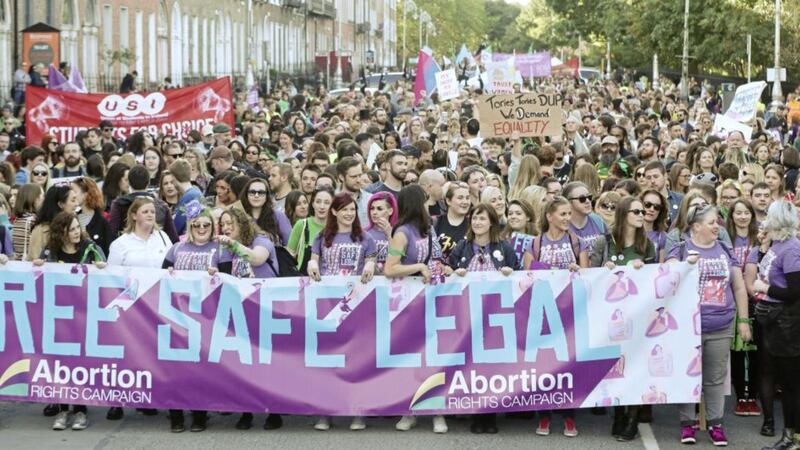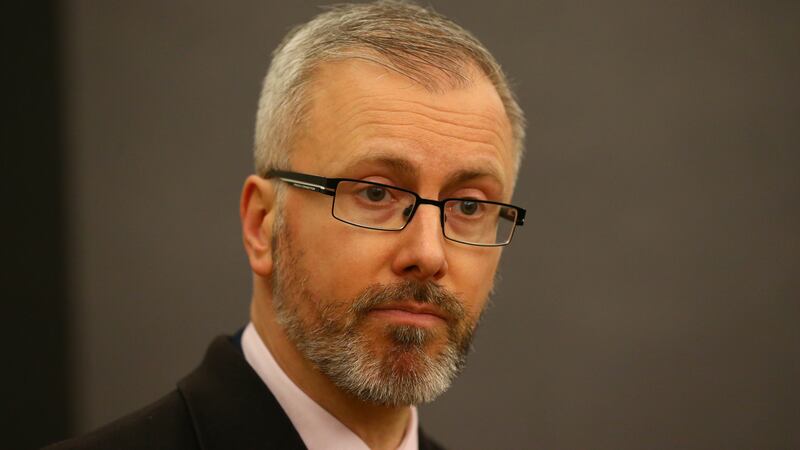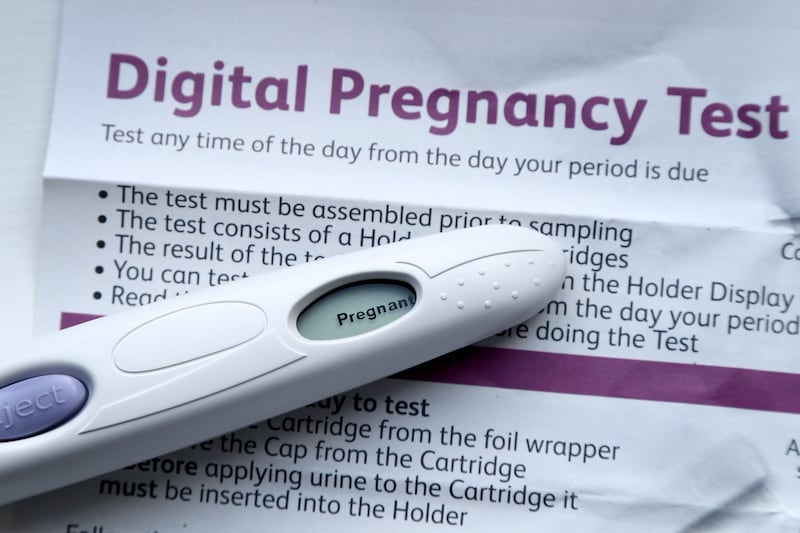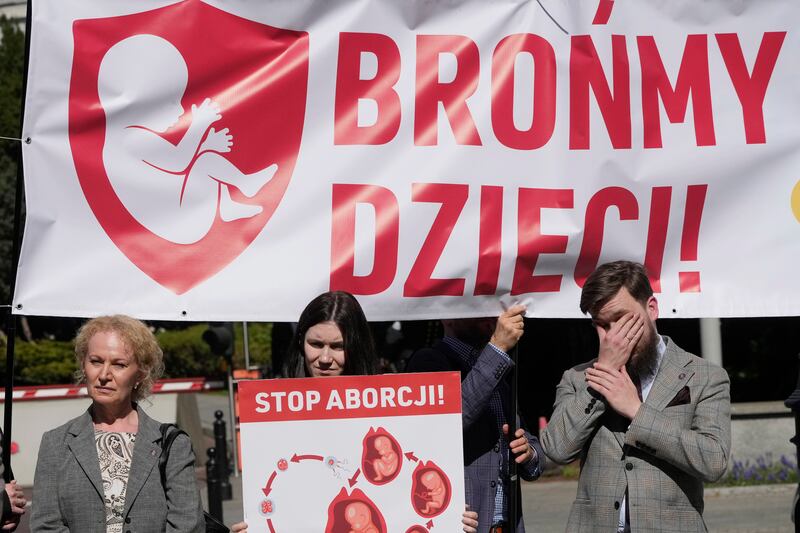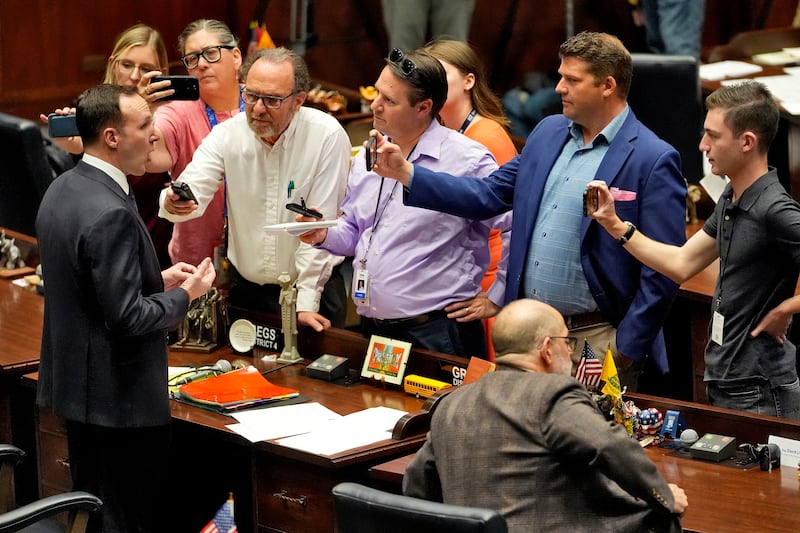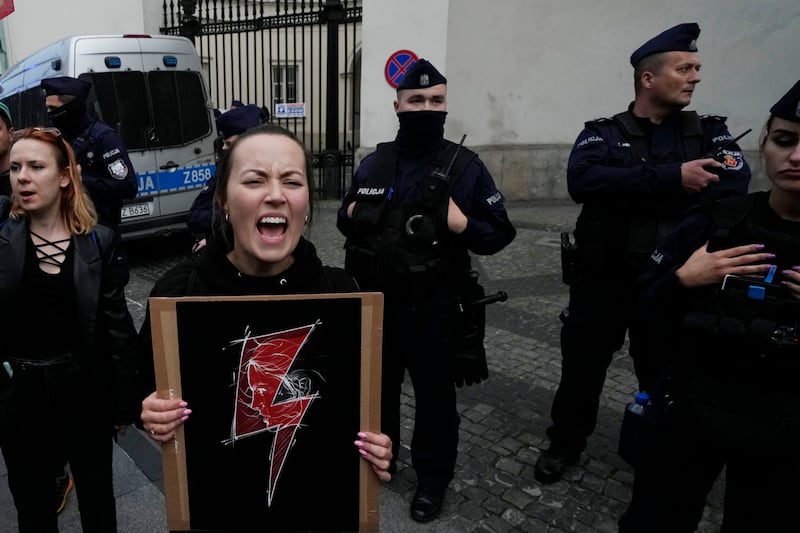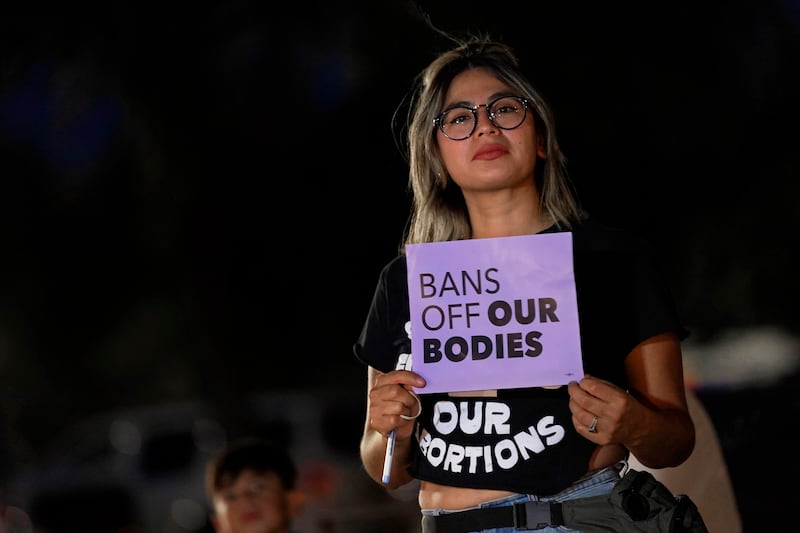THOUSANDS of people have taken part in a pro-choice march calling for the swift implementation of abortion services in Ireland.
There was celebratory tone to the annual March for Choice as demonstrators made their way through Dublin's main thoroughfares on Saturday afternoon.
It was the first march since the electorate voted overwhelmingly in favour of liberalising the Republic's strict abortion laws.
Abortion Rights Campaign spokeswoman Linda Kavanagh said some supporters were seeing each other for the first time since canvassing for the referendum earlier this year.
She said: "It's a big deal for us all to be together... no one understands the emotions that we all went through.
"People really dug deep and really bared their souls, and now we're all together again and we're on the other side. It is fantastic."
Ms Kavanagh said campaigners had overcome the first major hurdle in their abortion access fight but the "war" was not over as they were now fighting for abortion access on the entire island.
"We're an all-Ireland campaign," Ms Kavanagh said.
"Northern Ireland has made great strides this year, as have we. They are now able to get free abortions in England, Wales, but they are still having to travel for an abortion. No-one knows it better than us how stigmatising that is."
In May a controversial amendment of the constitution, which gave equal right to life of the unborn baby and the woman, was repealed, paving the way for terminations to take place up to 12 weeks without restriction and in certain circumstances thereafter.
Legislation to provide abortion services has been approved by the Irish government, but it has yet to be passed by parliament.
Health minister Simon Harris, children's minister Katherine Zappone, senator Catherine Noone, Amnesty Ireland's Colm O'Gorman and Dr Peter Boylan, all of whom campaigned for a Yes vote in the referendum, were among those at the march.
Dr Boylan said there was clearly a "groundswell of support" for the legislation but the next step, implementation, would prove challenging.
"It will make us a true republic if we can implement it successfully," he said.
Campaigner Sarah Monaghan said Ireland had changed forever and urged supporters to continue to fight for the women of the past and the future.
"This has never been quiet revolution, do not become quiet now," Ms Monaghan said.
"Without you, women will not access care at home in Ireland."
Obstetrician Mary Higgins and GP Mary Favier, both of whom were among the medical campaigners for choice, said their hands were tied under current laws.
Dr Higgins said: "I would have been one of the people who would have been diagnosing women when they have fatal foetal abnormalities and I'd have to sit down and talk to them about their so-called choices."
She said they were unable to look after women who made the decision not to continue with their pregnancy.
Dr Favier said implementation was a big challenge and that a lot of work had to be done to ensure women get a service not just in Dublin or Cork, but in all 19 maternity units and from the vast majority of GPs.
"It is not acceptable for a doctor to say 'I won't provide this service and I won't refer'... the patient has to come first," Dr Favier said.
